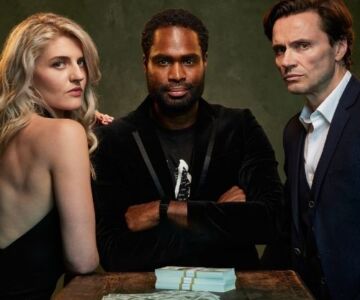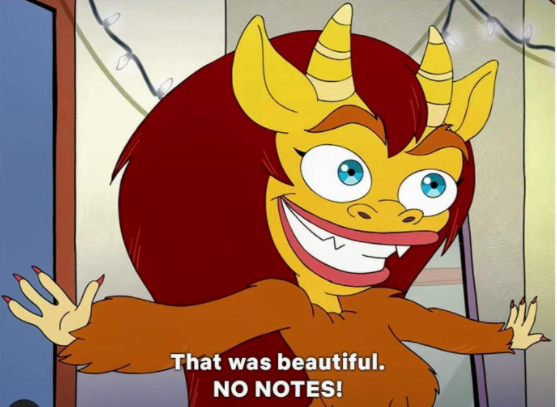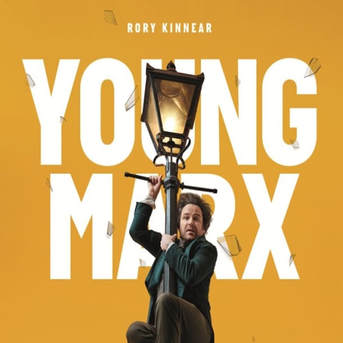 Mr Burns: A Clever Dystopian Tale So Close to Being Greatby Randi / July 1, 2021
Mr Burns: A Clever Dystopian Tale So Close to Being Greatby Randi / July 1, 2021It’s Theatre Thursday! Today’s show is the recent livestream of The Dumb Waiter from The Old Vic’s In Camera series.
Man, I feel like over the years I have seen every Pinter play (and piece of Mahler’s) and every time I’m like “…yeah okay.” Like I GET IT (do I?) he’s a genius and they’re all classics (really?) but it’s just…not my thing. The Dumb Waiter reinforced my whole ‘I mean sure’ vibe about Pinter.
The Dumb Waiter is widely considered one of Harry’s best shortypops, and I did appreciate that it was only about an hour long. The four-hander (that’s right) stars the very fine duo of Daniel Mays and Daniel Thewlis (who we enjoyed in Harry Potter and the Dude who Turns into a Werewolf) as two apparent hit men who wait in a prison cell-like room for instructions on their next target. I’m not the biggest fan of hit men, so at the start it’s an uphill battle for me to care about anything besides wondering if someone else in their universe could turn them in without using or glorifying the role of cops.
Instead of that, we had these two jackwagons sitting, reading the paper out loud, pacing, &c. And then they hear something in the wall and it’s a working dumbwaiter! Like for moving food between floors! Fun! Houses should have these! They start receiving messages – an envelope under the door, and then an order through the dumbwaiter. They’re like ‘well we don’t have any of these items’ so naturally they send back up whatever snacks they had on them. LIKE, WHY. I guess this humorous turn is kind of funny but the nonsense of it felt inconsistent. The men keep communicating with an unseen someone at the other end of the dumbwaiter, without really knowing who it is or what’s going on. Who is giving the instructions? Where are these messages coming from? These and more question will not be answered and will stand in for deep meaning!
I guess the whole twisty point of what, not knowing who you can trust? the destructiveness of power? everyone suffering under an unjust system? could have worth, but it had the emotional impact of a faux-motivational poster without supporting material helping any maxim feel earned. It kind of felt like Pinter trying to be Beckett. A loose plotline, slow pacing. a bit convoluted. As ever, I feel like Pinter plays are best appreciated by people who say ‘wow it really makes you think’ in a way that lets you know they have no idea what they are thinking.






